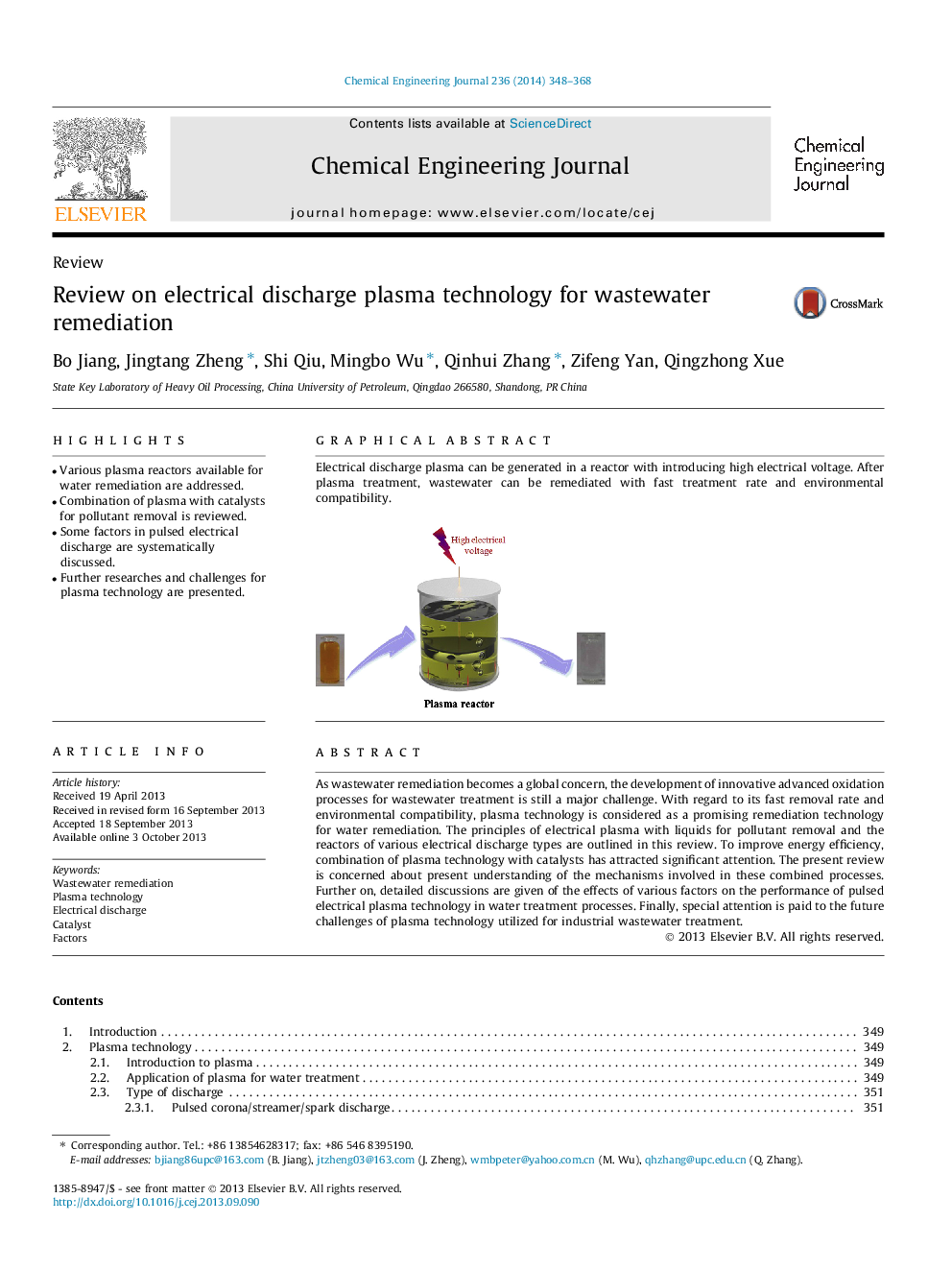| Article ID | Journal | Published Year | Pages | File Type |
|---|---|---|---|---|
| 147970 | Chemical Engineering Journal | 2014 | 21 Pages |
•Various plasma reactors available for water remediation are addressed.•Combination of plasma with catalysts for pollutant removal is reviewed.•Some factors in pulsed electrical discharge are systematically discussed.•Further researches and challenges for plasma technology are presented.
As wastewater remediation becomes a global concern, the development of innovative advanced oxidation processes for wastewater treatment is still a major challenge. With regard to its fast removal rate and environmental compatibility, plasma technology is considered as a promising remediation technology for water remediation. The principles of electrical plasma with liquids for pollutant removal and the reactors of various electrical discharge types are outlined in this review. To improve energy efficiency, combination of plasma technology with catalysts has attracted significant attention. The present review is concerned about present understanding of the mechanisms involved in these combined processes. Further on, detailed discussions are given of the effects of various factors on the performance of pulsed electrical plasma technology in water treatment processes. Finally, special attention is paid to the future challenges of plasma technology utilized for industrial wastewater treatment.
Graphical abstractElectrical discharge plasma can be generated in a reactor with introducing high electrical voltage. After plasma treatment, wastewater can be remediated with fast treatment rate and environmental compatibility.Figure optionsDownload full-size imageDownload as PowerPoint slide
